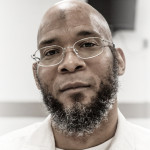
الحمد لله والصلاة عل رسول الله وبعد
Focus on the practical, not the emotional
We need to direct our attention to the practical side of any situation, rather than focusing on the emotional reaction.
BACKGROUND
- Since Monday, more than 700 — including women and children — have been killed as a result of the ongoing Israeli airstrikes on Lebanon
- Early last week, the country was hit by twin terror attacks, the first involving rigged pagers and the second involving walkie-talkies and other electronic equipment
- Israel has not admitted responsibility for either attack, but analysts are sure that it was behind both
- The multiple explosions last Monday and Tuesday caused the deaths of at least 42, with more than 3,500 injured
- Zionist forces and Hezbollah fighters have been engaged in tit-for-tat strikes since the beginning of the Gaza genocide
- Israel has so far ignored calls for a ceasefire, instead threatening a ground invasion
The enemy of our enemy is not necessarily our friend!
It is unfortunate that Ahl al-Sunnah — except the Palestinian resistance — are caught between two powers that are fighting.
And each one has a big agenda and mission to expand at the expense of their neighbours.
In such cases, Muslims should not apply the claim that,
“The enemy of my enemy is my friend.”
Rather, they should apply the Sharīʿah principle that aims to achieve the maximum Sharīʿah benefits of each situation.
Standing with one side to weaken the other side is a strategic move. However, it doesn’t mean that you turn a blind eye towards the enmity of the other side.
When the Romans defeated the Persians, both remained our enemies
Yes, Muslims felt happy when the Romans defeated the Persians, but they did not forget that both are our enemies!
Allah (subḥānahu wa ta’āla) mentions this in the Qur’ān,
“The Romans have been defeated in a nearby land.
“Yet, following their defeat, they will triumph within three to nine years.
“The [whole] matter rests with Allah before and after [victory]. And on that day, the believers will rejoice.” [1]
A binary mindset that splits the world into either angels or demons, friends or foes, is not the best to deal with complex socio-political matters.
This black and white view is not something leaders should have.
To assert Islam as a solution for global conflicts necessitates that we discover the practical and pragmatic nature of Islam.
For example, the treaty of Hudaybiyah is testimony to that. [2]
We should always protect innocent victims, especially those attributed to Islam
In any war, there are innocent victims; they should be helped.
This will be one of the best ways of giving da’wah.
The Prophet ﷺ participated in Hilf al-Fudūl (commonly translated as League of the Virtuous) — between the leaders of Quraysh — despite the victims not being Muslim.
US, Iran, and Israel are engaged in a balancing act
On the one hand, the US is keen to see the Zionist state in control of the entire Middle East.
However, if that cannot be achieved, it does not want to see strong independent Sunni countries in the area. So it would prefer to use Iran as a weapon against the Sunni Muslims.
Iran greedily tries to capitalise on this wish and expand, which may be in conflict with the American and Israeli agenda. Hence, they try to discipline Iran once it goes against its limits.
Neither Israel or Iran are in favour of a big war, as both know that they can’t afford it. Iran, in particular, doesn’t want that before it completes the development of its nuclear bomb.
Benjamin Netanyahu, along with some other extremists around him, might be the only ones who want this, as it serves their own personal interests and keeps them from facing numerous domestic criminal charges.
We need to harness this opportunity to build the Ummah
The global socio-political situation is very complicated, and thus no-one should speak about it confidently in a way that does not give space for different views.
This might come under the prohibition of making statements without knowledge.
Having said that, a final point is that Muslims should use the opportunity to try and build up the Ummah — make that a life mission.
Indeed, Allah wants us to do that.
He (‘azza wa jal) tells us,
“You are the best community ever raised for humanity — you encourage good, forbid evil, and believe in Allah.
“Had the People of the Book believed, it would have been better for them.
“Some of them are faithful, but most are rebellious.” [3]
Source: Islam21c
Notes
[1] al-Qur’ān, 30:2-4
[2] https://www.islam21c.com/tarbiya/trials/hudaybiyah-win-in-apparent-loss/
[3] al-Qur’ān, 3:110








Thank you, Shaykh Dr. Haitham al-Haddad, for this insightful reflection. Your focus on the practical side of faith in complex geopolitical situations is vital. May we continue to advocate for justice and support the innocent.